SPACE HEAVY: A MATURE REFLECTION OF KING KRULE'S PSYCHE
A decade into his career, King Krule releases his most mature record yet- but how does it sound?
28-year-old Archy Marshall's musical alias as King Krule has grown to be synonymous with his identity over the last decade. It has been used as a vessel for his urban poetry about the nocturnal grime and romance of his hometown of London since the time he was 17 and has continued to be so throughout his last 3 projects. Space Heavy isn't only a King Krule record about London filth and lost love (mind you, both of these still are incredibly prevalent) though, but also serves as a way for Archy to express his new life as a father, his adoration for his 4-year-old daughter, and what this has changed for him.
We get an introduction to the atmospheric ambiance which is common across Krule records early on with the opening track 'Flimsier.' A hazy, sunbathed synth fades in and echoes across the barren flats of sound that are depicted on the album's cover, before snapping into place as Krule begins to build us his world over a love-stricken guitar riff. Krule croons of his need to change himself for this ominous relationship to work, as it has been "holding the weight of the world." He swiftly concludes that this love he yearns to make work was not meant to be. Flimsier couldn't get any more King Krule than that.
'Pink Shell' feels like the response to the despair we are familiarized with on the opening track, as the somber tones of Flimsier begin to drunkenly stumble out of control into an emotional struggle. Krule unravels his self-worth and tells stories of his sins with other people's lovers while tripping over an arpeggiating bassline, anxiously-paced drumming, and the standout saxophone common in his production that fades in and out during his breakdown, feeling like the most stable point of this song, not lingering for too long, nor making a brief visit. Pink Shell's tensions wain and grow with additional layers of grating guitars and pinching synths that feel like Krule's growing anxiety represented through the music. It is intense, just like his unstable feelings. The whole track swiftly shuts itself up toward the end as the last smooth ripples of the saxophone silence his worries. We are then led into the warm embrace that 'Seaforth.'
Seaforth was the first single leading up to the album's release and is the first glimpse of Archy as a father, while still showing glimpses of his unstable romances. Seaforth is a breezy summer tune, as laid-back guitar chords strum away into the listener's ear, backed with a very intricately played main melody that gives way to a sense of security, starkly contrasting the grimmer motifs of the first two tracks on the album. Seaforth plays out as a sonnet, calling out to a lover he's growing apart from as they "separate across the blades of growing grass." It feels like a dream and is depicted as such in the opening lines where he describes her fading into the sand as he awakens. This is shown in the song's casually surreal music video too. The entire song also plays itself out to double as a letter to his daughter, describing her similar features and the faith he has in her. It begins to show us a transition from unrequited love into fatherhood, and how that has brought him stability in his life. Seaforth also gives us insight into the writing process behind this record, as it's said to have been written on trips between London and Liverpool (where Seaforth is), adding to the sense of journey which was already instilled in the listener through the storytelling of previous tracks. What I will say about Seaforth which I find a bit odd is that no other song on this record chimes up like it- it stands out as the only truly joyous song on the album, slightly offsetting the pacing of the record.
As Seaforth trods into a slower state as it closes down, we are then tossed into the melancholic warmth of That Is My Life, That Is Yours. Here, the warmth of the sunkissed riffs of Seaforth cool and slow like molten lava, warm but dramatic chords are dragged across the space, making a path for a melody to trickle down. Krule himself says that "It's late/ And it's warm." We continue to see Krule on the hunt for his lost lover, unaware of his dream-lovers whereabouts as he takes night buses in search of her. This search that Krule's developing through his lyrics feels far more conjointed than on previous projects, truly painting a picture from start to finish. The song finishes in classic Krule fashion, building up and making way for a tragically beautiful saxophone solo, before returning to the initial musical motifs we are introduced to. As gorgeous of a formula as this may be, one thing that all of Krule's projects suffer from is a repetition in the formula. His production is left-wing and makes it feel unique from other musicians, but it oftentimes leads to a slump toward the middle of his projects, where songs merge and become difficult to distinguish. It feels evident that Krule attempts to combat this on this project, but at times can fall victim to the cycle.
Tortoise Of Independency is one of these tracks which falls victim to the middle album mush, as it begins to blend hazily with the surrounding tracks, making the space feel heavy (see what I did there?). Tortoise sees Krule reminiscing on this lost lover, "on the park bench of memory." It is a little vaguer than the other tracks lyrically, adding to the sense of Krule attempting to remember these dreams he's had of her. What is admirable about this track is that is another track that uses synths on the album, which before Space Heavy were used rarely throughout Krule's works. This fading synth line (like that of Krule's fading dreams) leads us into the next track, Empty Stomach Space Cadet.
Empty Stomach Space Cadet takes the perspective of this lost lover, as the echoey world sends dissonant jabs of sound through the void. The perspective taken on by Krule here almost is begging for him to let her go, asking for her to be thrown "in the trash", even after they had been through thick and thin. It gives a sense of fear, pleading to be let go of as she describes how he would endlessly wait for her return, making her feel trapped rather than loved, reflecting the themes of his poor ability to love that were brought about in Pink Shell. What I adore about this song is the echoey jabs that are incorporated, as we hear sounds between female vocals, saxophone, synths, and guitar. It adds to the ghastly effect of his writing, although I wish it was a motif he leaned further into, as it feels to be used too safely here. A part of the appeal of Krule's sound is that it is echoey and surreal, and at times it feels as if he is playing with delay and reverb too safely out of fear of overdoing it. Space Cadet is one of those tracks to me.
We are then met with the first of two instrumental interludes with the track Flimsy, which splits the album (almost) down the middle with its climactic bows that are its strings, distantly dissonant guitar, and a low hanging bass which comes and goes with over the minute and thirteen seconds. It feels cinematic, as if it was out of a Studio Ghibli film, creating a naturally calm aura as it passes through the listener's eardrums. What stands out to me about this interlude is the blabbering of what can only be Marshall's four-year-old daughter- incoherent but meaningful, almost representing a shift in Archy's focuses, away from the love-stricken identity he dawns with King Krule, and closer to his identity as Archy Marshall.
We get tossed back into the anxiety of King Krule though with the album's eighth track, Hamburgerphobia. This track feels straight from Krule's 2017 album, The Ooz, as we are chaotically tossed into the fast-paced, grimy, jittery drums that are contrasted with the slow drag of lethargic guitar riffs and spacey pads. Krule paints us one of his classic pictures, one that focuses on the little day-to-day details you wouldn't typically find meaning in, like eating a burger, which to Krule leads to an existential and psychedelic dread of dying to the peckings of birds. Krule picks apart the layers of the burger down to the grease, comparing it to the meaninglessness of living, and what you truly mean after death, since those above don't "care about the state of your status." The second verse returns us to memories of a lover, but rather than being tinted with lovesickness, are tainted with frustration as the former couple argues, leading to Krule being kicked out of their car in heavy rain, being told he's "just a waste of space", a reoccurring theme across the album that ties into the title of the project with its polar meaning. This track feels very classically Krule, which greatly benefits it, as it is a sound he's very obviously mastered with years of practice.
From The Swamp by far has my favorite vocal performance from Krule off this project, as he drags and over-annunciates the end syllables of his words, creating a sense of dread and endless waiting. Krule's adoration for this lost lover falls from its grace for the first time on this track, as Krule reflects on moments when he was vulnerable yet met with apathy from her, asking "What's wrong with ya?" This track is very mellow but keeps up with the pacing of the previous track, remaining less musically distraught, staying (relatively) calm and collected as Krule realizes that his romanticized lover isn't as great as she may have initially seemed to him.
Seagirl is the first King Krule song to have a listed feature, as Krule has brought R&B singer Raveena for the track. Initially, I was more excited about this track, but we are met with this very trippy, repetitive, overly-calm track that for me doesn't excite me both lyrically and sonically. It feels very disjointed and unfinished, and although it only runs at three minutes and twenty-two seconds, it feels more dragging.
Our Vacuum is another track that I wish was further developed, as the sleepy main melody dominates the majority of the track, only truly being backed with the occasionally dragged-out bass note. This lo-fi production from Krule can at times be the downfall of his work, as it doesn't add to the emotional strife he is attempting to convey. Vocally, I wish Krule had done more as well, as the track feels rather flat. Lyrically, Krule paints beautiful images of the night sky, its great heavy space which he and his lover once laid under, the vacuum of space is theirs.
The album's title track sees emotional torment as Krule describes himself sinking into the depths of a lake, which is made of the "oil of misery." Krule sees his lover attempting to help him, but refuses her help, as it would be as if she was sucking the contents of the lake of his demise dry with a plastic straw. Not very helpful, is it? Krule continues to ride on this idea, consistently repeating with more anguish and anger "My plastic straw." The music swells and morphs to meet his tortured tune that rings out across the air with such pain. It is tragically gorgeous, and the exact type of energy the album needed at this point.
It is at this point that we come to the second instrumental interlude, When Vanishing. The cinematic strings of flimsy make their return here, as they gracefully stride with a sense of grandiose and maturity. It seems Raveena makes a slight appearance on the track as well, as echoing mechanic pads explore the unknown space, accompanied by her voice coming and going, before introducing the long-awaited saxophone which has been relatively absent for this leg of the album. These transition moments feel very calm in between the moments of the chaos of King Krule's tortured soul.
The very slow If Only It Was Warmth makes a return to King Krule's sorrow, as he is "running out of space" for mistakes made. The emphasis on space across the album takes shape in several ways, and here, Krule is saying that the space that the mistakes of this unnamed person (possibly his lover or even himself) have weighed down upon him, making life more difficult for him. Although a nice metaphor, this is yet another track where Krule repeats himself, and the subdued attitudes of his production do not help carry this track either.
At last, we come to the final track of the album, Wednesday Overcast. On this closer, we hear drums which very much so remind me of Aphex Twin's Alberto Balsalm, bouncing around in what feels like a zero-gravity environment, out into the great expanses of space. Electronic bits of white noise fades in and out like seafoam on desolate beaches. We see the return of strings through the track too, bringing a sense of clarity to the project that was needed after the long stretches of emotional grief that every King Krule record brings. Lyrically, we are delivered a poem in couplets that mix and mash the two halves of King Krule and Archy Marshall, concluding this difficult lover, and describe the melancholy outskirts of an industrial town where the two meet, where Krule lays down once more under the star-stricken sky described in Our Vacuum. As the track comes to a close, Archy finishes his poem with the lines, "A lot has changed, now a lot means to me." These closing lines feel as if they are meant for his daughter, suggesting her birth made him complete, showing him there is more to life than unsuccessful romances with people who are not there to help you, thus concluding the album.
Space Heavy is a story of maturity, and growing out of the desperation of one's youth to focus on the future at hand. It is well written, transitions well song-to-song, and has some of Archy's best work and writing. It derives from all his previous works, showing the listener what he has learned throughout a decade-long career. But, at the same time, it can feel half-baked and drab as the record enters its middle, making it difficult for the listener to retain focus on its beauty and meaning. Space Heavy is a mixed bag but overall can stand strong in King Krule's melancholic and grimy discography, making it a worthwhile listen.

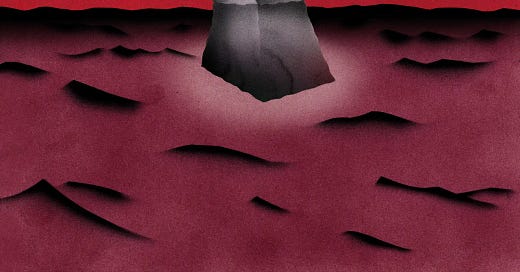



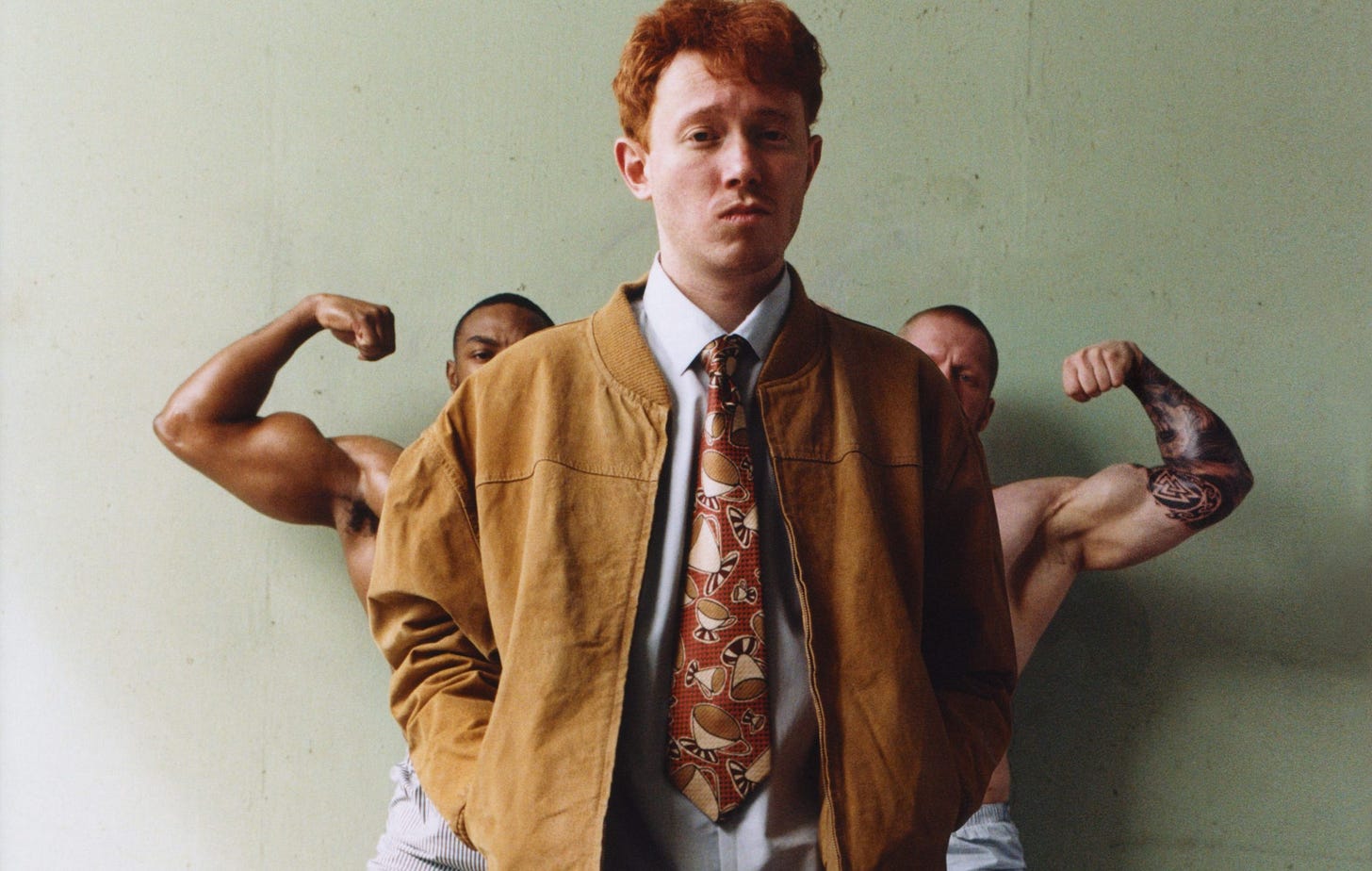
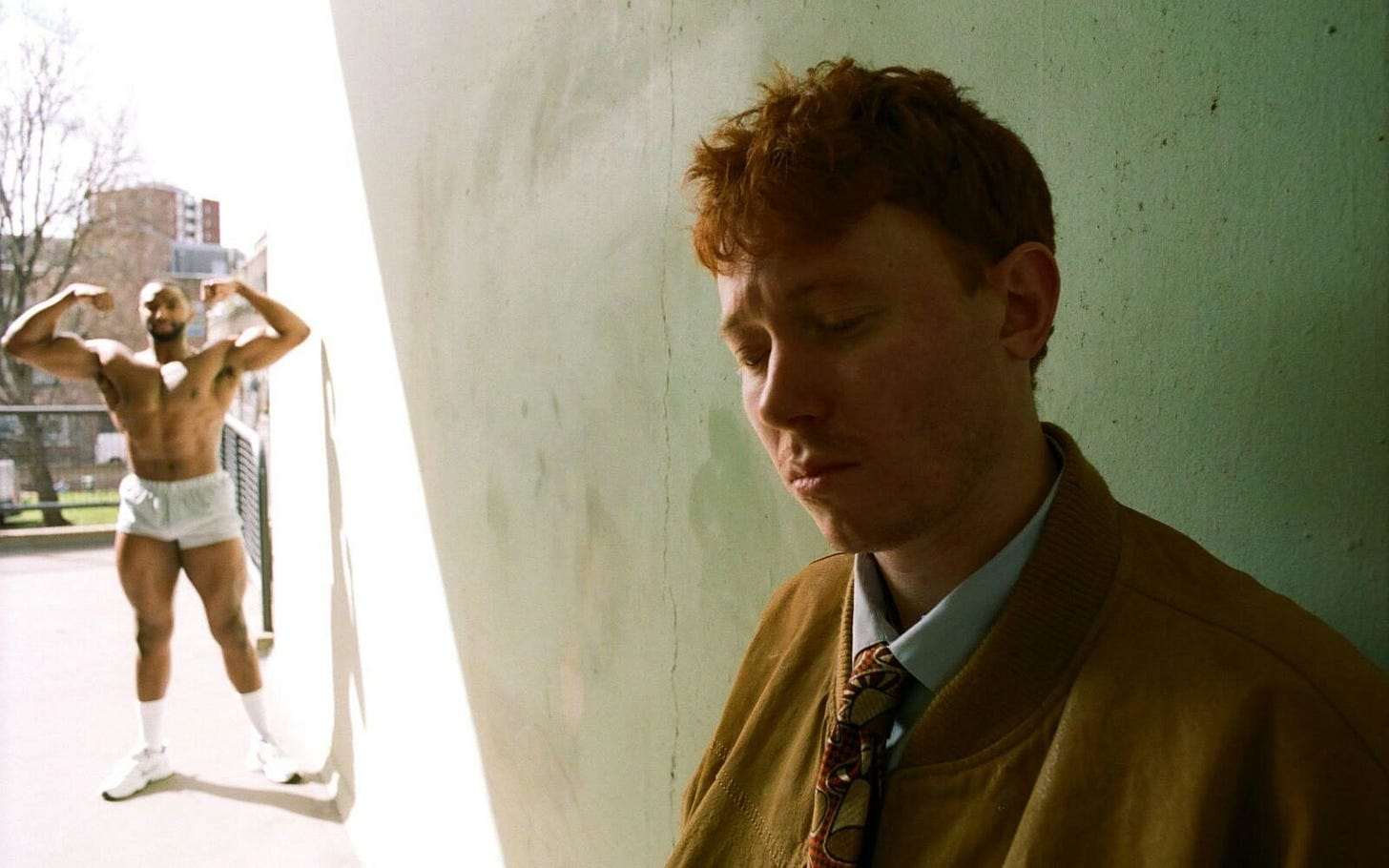

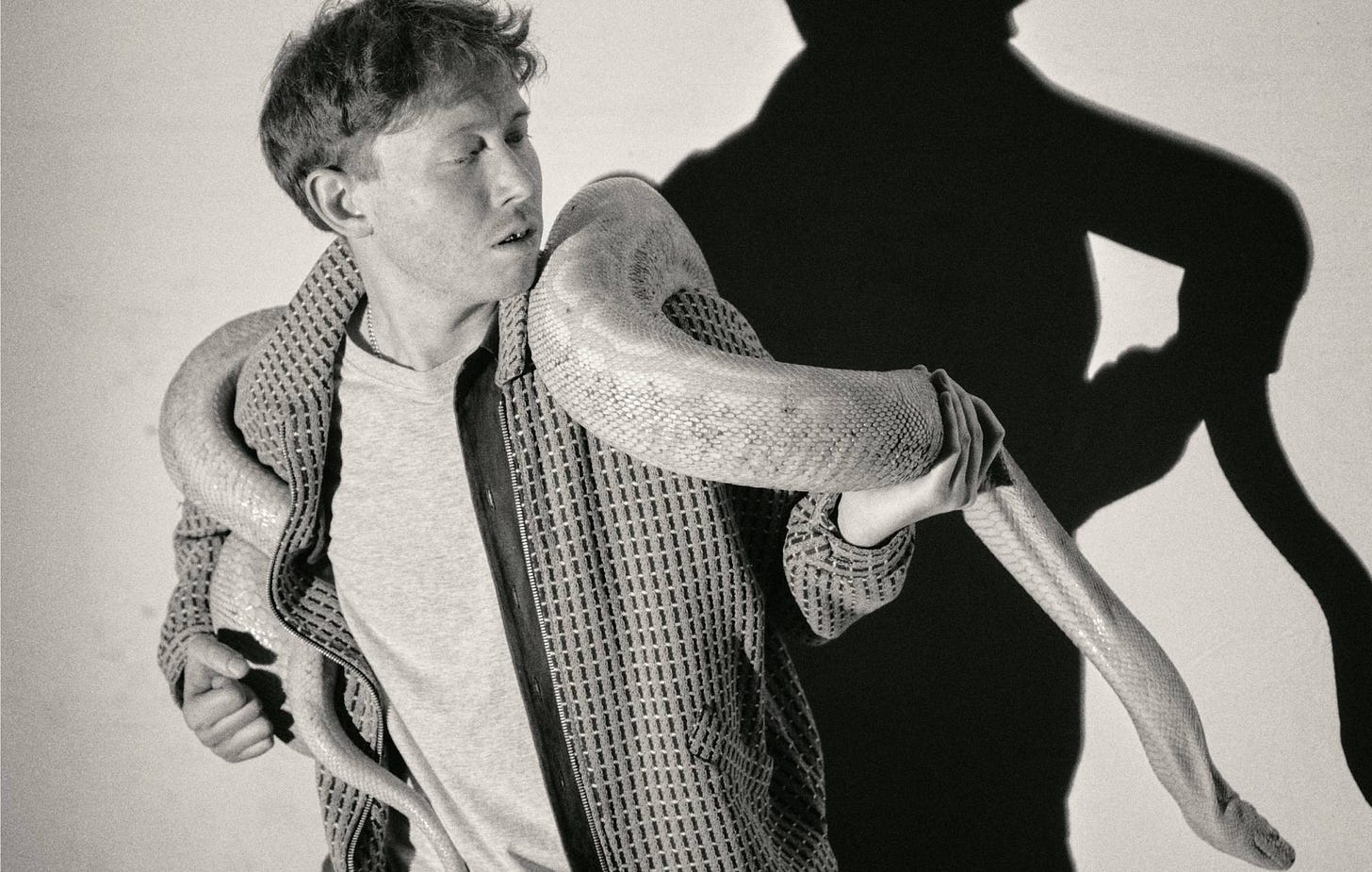
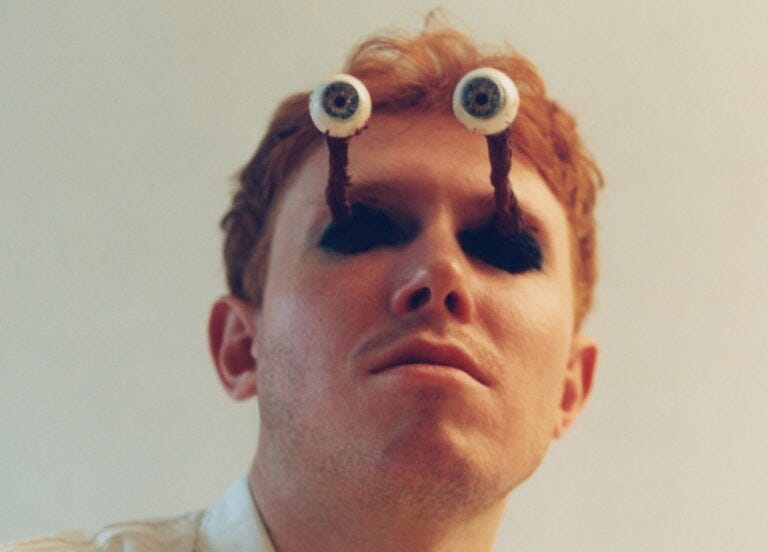

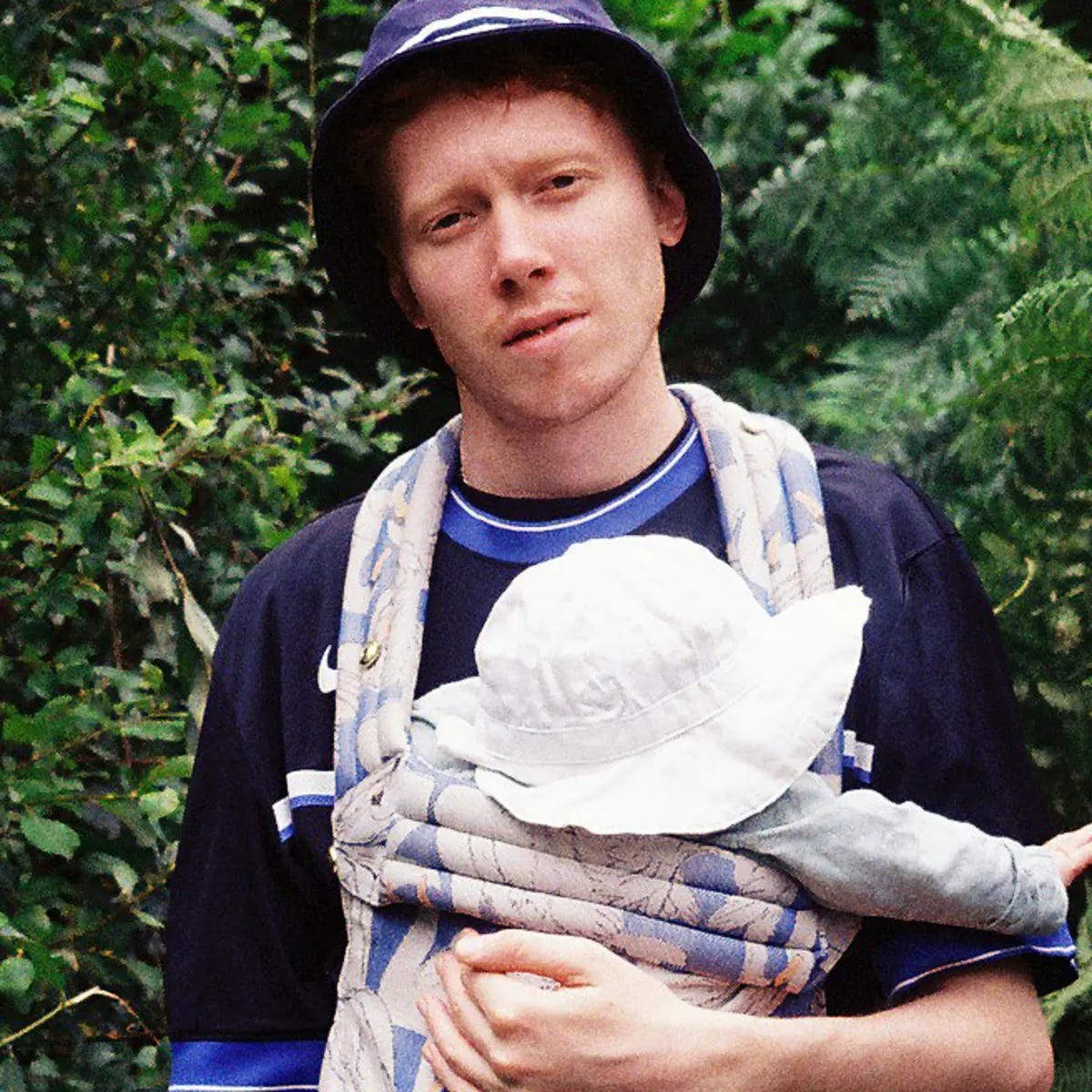
This record has seriously grown on me by the way. Album of the year without a doubt.